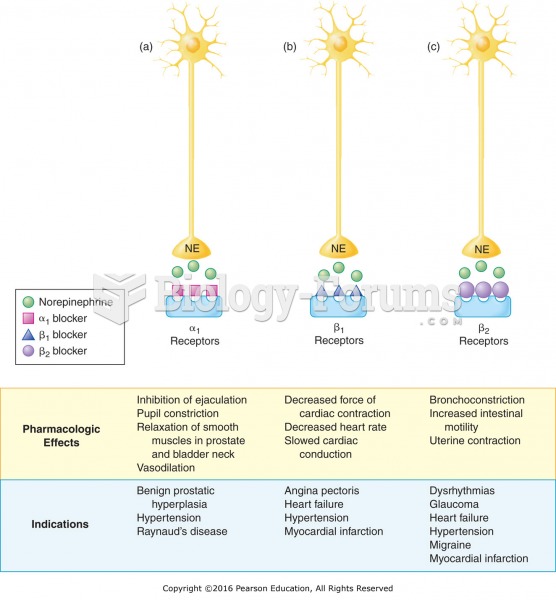|
|
|
Though methadone is often used to treat dependency on other opioids, the drug itself can be abused. Crushing or snorting methadone can achieve the opiate "rush" desired by addicts. Improper use such as these can lead to a dangerous dependency on methadone. This drug now accounts for nearly one-third of opioid-related deaths.
Malaria mortality rates are falling. Increased malaria prevention and control measures have greatly improved these rates. Since 2000, malaria mortality rates have fallen globally by 60% among all age groups, and by 65% among children under age 5.
The first oncogene was discovered in 1970 and was termed SRC (pronounced "SARK").
Parkinson's disease is both chronic and progressive. This means that it persists over a long period of time and that its symptoms grow worse over time.
Most women experience menopause in their 50s. However, in 1994, an Italian woman gave birth to a baby boy when she was 61 years old.
 Model of a longitudinal study in which 983 students were surveyed in 1984 and then again in 1985, 19
Model of a longitudinal study in which 983 students were surveyed in 1984 and then again in 1985, 19
 Pharmacologic effects and indications of adrenergic antagonists: (a) blockade of alpha1 receptors; ...
Pharmacologic effects and indications of adrenergic antagonists: (a) blockade of alpha1 receptors; ...





